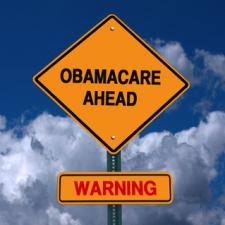 The federal fiscal year begins October 1st. That’s the date by which, if Congress fails to pass a budget that the President can sign into law, the federal government will shut down. There are a number of implications to such a shutdown. For example, national parks and monuments will be closed, and nearly all federal employees will be sent home on furlough.
The federal fiscal year begins October 1st. That’s the date by which, if Congress fails to pass a budget that the President can sign into law, the federal government will shut down. There are a number of implications to such a shutdown. For example, national parks and monuments will be closed, and nearly all federal employees will be sent home on furlough.
 The federal fiscal year begins October 1st. That’s the date by which, if Congress fails to pass a budget that the President can sign into law, the federal government will shut down. There are a number of implications to such a shutdown. For example, national parks and monuments will be closed, and nearly all federal employees will be sent home on furlough. The military will continue to operate, but its personnel will be paid in IOUs. Likewise, “critical” jobs like air-traffic control will continue, but if you need to renew your passport before leaving the country, sit tight: The U.S. Passport Agency won’t be making much progress during a shutdown. But what about ObamaCare? How would a government shutdown affect the implementation of this sweeping reform of the health care system?
The federal fiscal year begins October 1st. That’s the date by which, if Congress fails to pass a budget that the President can sign into law, the federal government will shut down. There are a number of implications to such a shutdown. For example, national parks and monuments will be closed, and nearly all federal employees will be sent home on furlough. The military will continue to operate, but its personnel will be paid in IOUs. Likewise, “critical” jobs like air-traffic control will continue, but if you need to renew your passport before leaving the country, sit tight: The U.S. Passport Agency won’t be making much progress during a shutdown. But what about ObamaCare? How would a government shutdown affect the implementation of this sweeping reform of the health care system?
The answer, it seems, is not so much. The primary reason is that much of the funding for provisions of the law are not subject to annual appropriations, and are therefore able to continue operating even without Congressional budget approval. There are other details, of course, and Sharon Begley and Lewis Krauskopf summarize them nicely here.
The irony is that the GOP intended to disrupt the implementation of ObamaCare by passing a budget that stripped away funding for health reform. However, because the Democratically-controlled Senate is highly unlikely to approve such a bill, and the President is even less likely to sign such a bill into law, that decision is what is leading us down the road to a government shutdown. A shutdown that, in all likelihood, will have very little effect on ObamaCare implementation. It’s even more ironic when you consider that October 1 is the date that the health insurance exchanges–a central element of reform–are expected to begin enrolling people for coverage effective January 1, 2014. This explains why the President is hitting the road to educate the public about the exchanges and encourage them to get enrolled. October 1 could be a rather monumental day in its own right. Thankfully, it’s not the kind of monument that can be shut down by the federal government.
(Obamacare / shutterstock)





